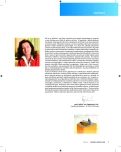-
Medical journals
- Career
Ageism – a threat of social isolation in the old age.
Authors: K. Maršálková; K. Schmeidler
Published in: Geriatrie a Gerontologie 2016, 5, č. 1: 44-48
Category: Review Article
Overview
Ageism (i. e., the complex and often negative social construction of old age) is highly prevalent. There is unequivocal evidence concerning the negative consequences associated with ageism at the individual, familial, and societal levels.
Faced with the challenges of an ageing population, we would like to encourage innovative solutions that transform this challenge into an opportunity by responding to the needs of older Europeans and making active ageing a reality, keeping older people healthy, independent, socially engaged and fulfilled as valued contributors to society. The European Union would like to launch this activity to tackle ageing-related issues, and thereby improve the well-being of the elderly, including high quality of life, fulfilment and social activities.
The long term goal of this action is to challenge the practice of ageism and allow older people to realize their full potential. This will be achieved by enhancing scientific knowledge and attention to ageism, by bringing together and integrating the different disciplines of research, by developing national, multi-national and international collaborations with public policy officials, non-academic professionals, civil society NGOs and older persons, and by fostering a new generation of researchers. Expected deliverables include: a) the creation of a web-site; b) a depository database of scientific measures and evidence based interventions that target ageism; c) the facilitation of scientific Training Schools, Short Term Scientific Missions and conferences; and d) the dissemination of collaborative working papers, scientific reports, proceedings, academic publications, policy and recommendation papers and an edited book on ageism. In light of the changing demographics, the high prevalence of ageism, its complex social roots, broad consequences, and the limited research on the topic, this action is timely and has both practical and scientific significance.KEYWORDS:
ageism – ageing of the population – senior Citizen – social discrimination – old age social exclusion – social inclusion – social barriers – social stereotypes
Sources
1. Butler RN. Why survive? Being Old in America. New York: Harper and Row 1975.
2. Haškovcová H. Fenomén stáří. Praha: Olympia 1989.
3. Hoskovec J, Štikar J, Štikarová J. Řízení motorových vozidel ve stáří. Psychologie v ekonomické praxi 2004; 39(1–2): 65–73.
4. Mareš P. Sociologie nerovnosti a chudoby. Praha: Slon 1999.
5. Mc Hugh, Kevin E. Three Faces of Ageism: Society, Image and Place. Ageing and Society 2003; 23 : 165–185.
6. Palmore ED. Ageism. Negative and Positive. New York: Springer 1999.
7. Schmeidler K. Green and Economic Mobility in Czech Urban Areas. In: WPSC 2011 – World Planning Schools Congress 2011. Planning Future – Futures Planning, Planning in an Era of Global (Un)Certainty and Transformation. Perth, Western Australia, 4.–8. července 2011 [CD-ROM]. Perth Convention and Exhibition Centre (Austrálie): Curtin University, 2011, s. 250.
8. Schmeidler K. Mobility, transport and accessibility for elderly. In: Gerontology without borders: diversity in european and transnational research. 1.–2. července 2010. Swansea University (Velká Británie): International Association of Gerontology and Geriatrics, 2010, s. 24.
9. Schmeidler K. Transport planning in shrinking cities. In: Innovation in governance and decision making in planning. CITTA 4th Annual Conference on Planning Research, Faculdade de Engenharia da Universidade do Porto (Portugalsko), 11.–13. 5. 2011 [CD-ROM]. University of Porto (Portugalsko): The Research centre for Territory, Transports and Environment, 2011, s. 20.
10. Schmeidler K. Inkluzívní mobilita – o dopravě a stárnutí populace měst. Geri a gero 2015; 4(1): 42 – 47.
11. Schmeidler K. Mobilita a demografické změny – nároky na transportní systém. Veřejná správa 2014; 25(3): 22.
12. Schmeidler K. Mobility management. Veřejná správa 2012; 23(10).
13. Tošnerová T. Deprese zhoršuje paměť víc než stáří. Lidové noviny, 22. 10. 2002. str. 19.
14. Uhlenberg P. Introduction: why we study age integration? The Gerontologist 2000; 40 : 261–266.
15. Vidovičová L. Věková diskriminace – ageismus: úvod do teorie a výskyt diskriminačních přístupů ve vybraných oblastech s důrazem na pracovní trh. Praha, Brno: VÚPSV 2005.
16. Zavázalová a kol. Vybrané kapitoly ze sociální gerontologie. Praha: Karolinum 2001.
Labels
Geriatrics General practitioner for adults Orthopaedic prosthetics
Article was published inGeriatrics and Gerontology

2016 Issue 1-
All articles in this issue
- Specializace v geriatrii a kompetence geriatra
- Haemorrhaging complications of anticoagulation therapy in geriatric patients.
- Effect of reminiscence therapy on depressivity and cognitive function at elders in long-term care.
- Deep vein thrombosis and its treatment in questions and answers.
- Diseases of the thyroid gland with a focus on senior age.
- The role of nutrition in prevention of cognitive decline in the old age.
- Transmissible spongiform encefalopathy as a cause of dementia induced by prion particles
- Ageism – a threat of social isolation in the old age.
- Geriatrics and Gerontology
- Journal archive
- Current issue
- Online only
- About the journal
Most read in this issue- Deep vein thrombosis and its treatment in questions and answers.
- Diseases of the thyroid gland with a focus on senior age.
- Transmissible spongiform encefalopathy as a cause of dementia induced by prion particles
- Specializace v geriatrii a kompetence geriatra
Login#ADS_BOTTOM_SCRIPTS#Forgotten passwordEnter the email address that you registered with. We will send you instructions on how to set a new password.
- Career

